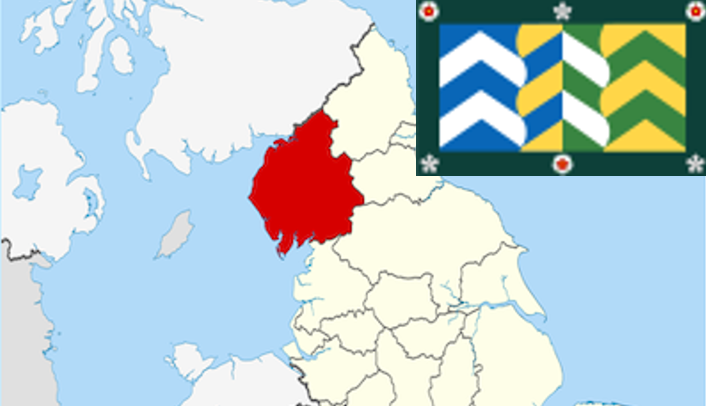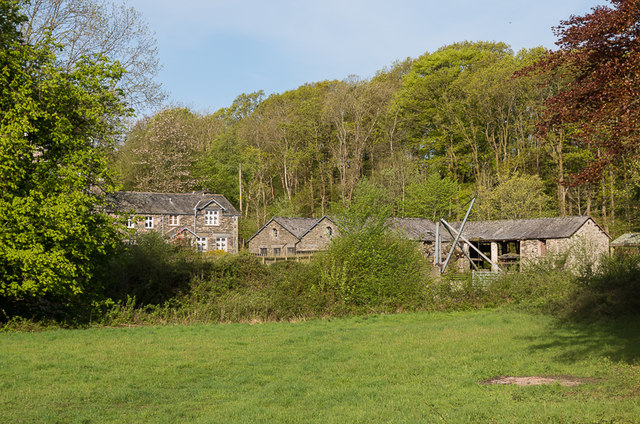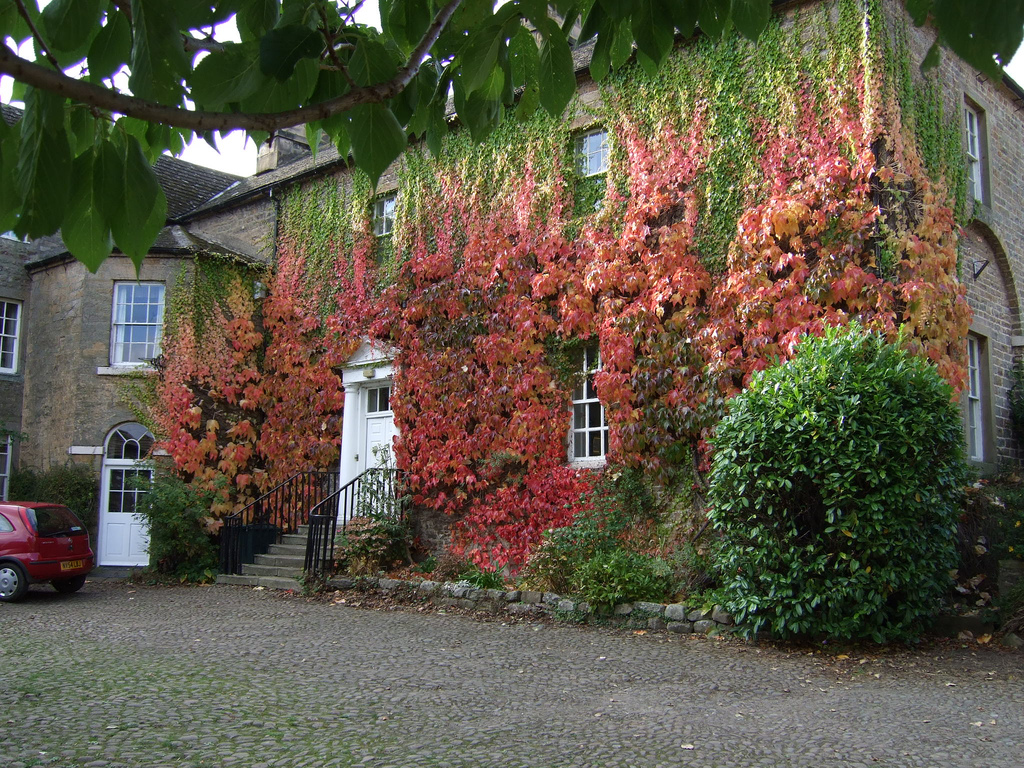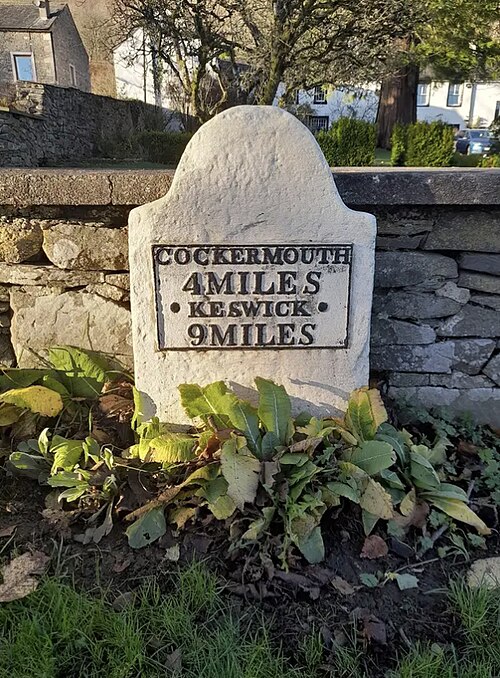Topics > Civil Parishes in Cumbria > Satterthwaite Civil Parish
Satterthwaite Civil Parish
Parish boundaries may have changed - for the latest map see the Parish Council or Westmorland & Furness Council.
About the Parish
| Settlments |
Satterthwaite (village), Bowkerstead, Greythwaite, Grizdale, Force Forge |
| Population: |
213 (2021 Census) 215 (2011 Census) 257 (2001 Census) |
| Area: | 29.6 km2 |
| Parish Council: | Satterthwaite Parish Council |
| Unitary Authority: | Westmorland & Furness Council |
| Ceremonial County: | Cumbria |
Historical |
|
| Ancient Township: |
Satterthwaite (chapelry) Townships and Chapelrys became civil parishes in their own right in 1866 (see below). |
| Ancient Parish: |
Ancient parishes refer to the parishes before the split between ecclesiastical (church) and civil parishes in the 19th century. They had a parish church and often were composed of multiple townships and chapelries. In many cases, townships and parishes were originally based on the territory of manors from the feudal system during medieval times. Civil parishes were created following the Poor Law Amendment Act 1866, in which Church of England parishes, extra-parochial areas, townships and chapelries, became "civil parishes" which could set their own poor rate (tax). Then the reforms of Local Government Act 1894 established elected civil parish councils (or parish meetings for parishes with less than 300 residents) and created urban and rural districts. Boundaries of parishes and civil parishes may have changed over time. |
| Ancient District: |
Lonsdale (Lancashire) |
| Poor Law Union: |
Ulverston Poor Law Union, formed in 1836. Ulverston Poor Law Union Workhouse was located on Stanley Street in Ulveston, built in the late 1838. Following extensions, by 1887, the workhouse could house up to 282 inmates. This replaced an earlier workhouse at Neville Hall in Ulverston. Under the Poor Law Amendment Act of 1834 parishes were grouped into Unions, each of which had to build a workhouse if they did not already have one. It ended the old system of locally provided poor relief which had come under strain as numbers out of work grew, following increasing mechanisation of agriculture and the economic downturn after the Napoleonic Wars, along with changing social attitudes. The workhouse provided those unable to support themselves financially with accommodation and work. Inmates were generally segregated into men, women, boys and girls. The workhouse system was abolished by the Local Government Act 1929, but many workhouses lived on as ‘Public Assistance Institutions’ until the National Assistance Act 1948. The workhouse in Ulveston later became the Stanley Hospital. |
| County: |
Lancashire, until 1974, then: Cumbria, which was created on the 1st of April 1974, following the Local Government Act 1972. The new county absorbed Cumberland and Westmorland, and added some parts of Lancashire and the West Riding of Yorkshire. Cumbria County Council was abolished in 2023 and replaced by 2 new Unitary authorities. Cumbria remains a ceremonial county; retaining ceremonial boundary and the roles and responsibilities of the Lord Lieutenant and High Sheriff of Cumbria - based on 'The Cumbria (Structural Changes) Order 2022'. |
|
District Council: |
Lonsdale ( - 1960) North Lonsdale (1960 - 1974) South Lakeland District (1974 - 2023) South Lakeland and the 5 other district councils of Cumbria, along with the county council, were abolished as part of local government reorganisation in 2023; and replaced by two unitary authorities on 1st April 2023. |
|
Unitary Authority: |
Westmorland & Furness Council was created on the 1st April 2023. The 'new' Westmorland & Furness unitary authority area includes the historic county of Westmorland, along with parts of historic Cumberland, including Penrith and it's surrounding area, and also parts of historic Yorkshire and Lancashire. |
See also: ![]() Historic Buildings and Monuments in Satterthwaite Civil Parish. Note: listed buildings are generally the responsibility of the county council / district council, rather than the parish council.
Historic Buildings and Monuments in Satterthwaite Civil Parish. Note: listed buildings are generally the responsibility of the county council / district council, rather than the parish council.
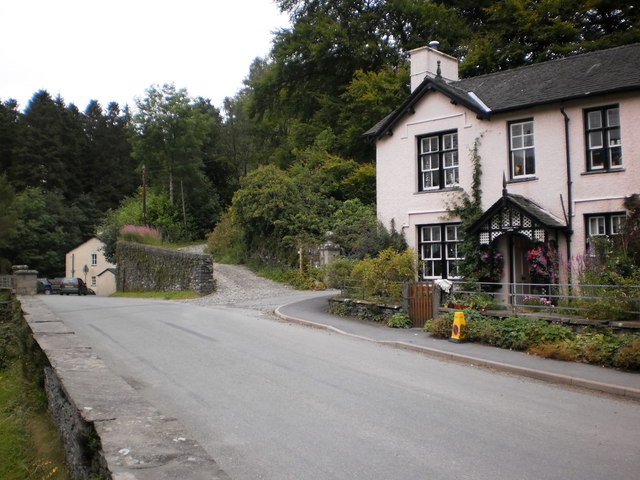
Co-Curate Page
Grizedale
- Overview About Grizedale Map Street View Grizedale is a hamlet in the South Lakeland area in the ceremonial county of Cumbria, located within Grizdale Forest. The Yan is an eye-catching …
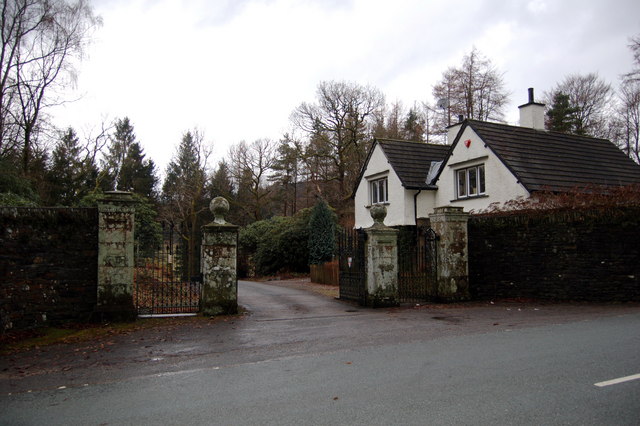
Co-Curate Page
Graythwaite
- Overview Map Street View Graythwaite is a hamlet in the South Lakeland district of Cumbria, situated to the west of Windermere (lake) and located about 4 miles south of Hawkshead …
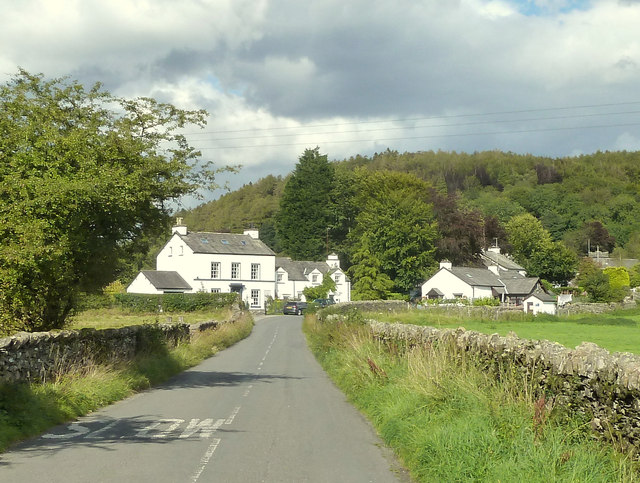
Co-Curate Page
Satterthwaite
- Overview About Satterthwaite Map Street View Satterthwaite is a village in the former South Lakeland district of Cumbria, within the Westmorland and Furness unitary authority area. The village forms part …
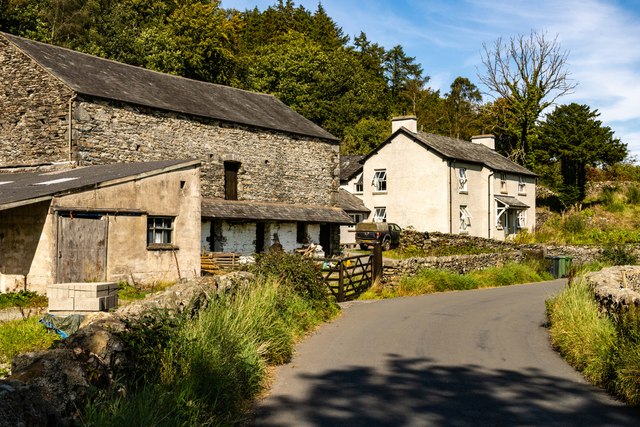
Co-Curate Page
Force Forge, Cumbria
- Overview Map Street View Force Forge is a farm / hamlet, situated by Force Beck and located about 1 mile north-west of Rusland and 1½ miles south of the village …
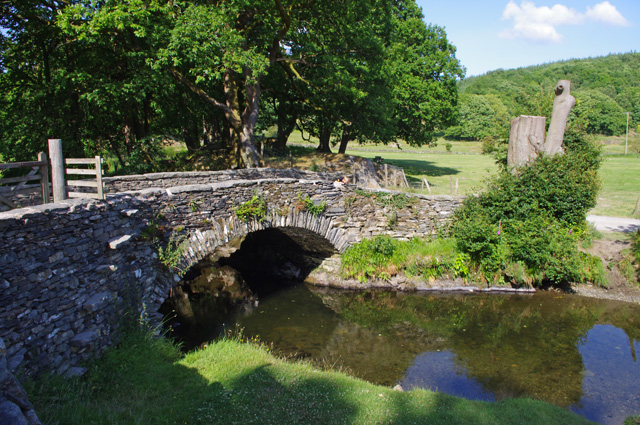
Co-Curate Page
Bowkerstead
- Overview Map Street View Bowkerstead is a hamlet near the village of Satterthwaite in Cumbria. Bowkerstead Farm and Grizdale Campsite are located at High Bowkerstead and a short distance south-west …
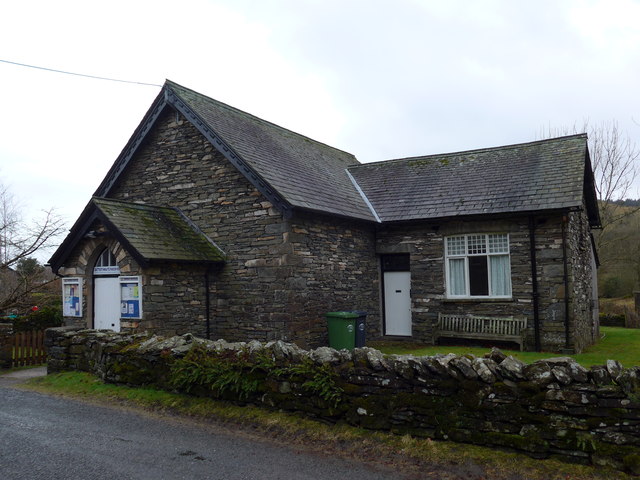
Co-Curate Page
Satterthwaite Parish Room
- Overview Map Street View The Parish Room in Satterthwaite was designed by Grundys of Ulverston and built in 1883.[1] The building was extended in c.1900 to add a Reading Room …

from http://www.satterthwaitepc.or…
Satterthwaite Parish Community Website
- Details of the parish, Parish Council, Church, events etc. "This is a locally sponsored, community website, providing information about the history of Satterthwaite Parish, its geography, council, current events and …
Added by
Simon Cotterill


Co-Curate Page
Grizedale
- Overview About Grizedale Map Street View Grizedale is a hamlet in the South Lakeland area in the ceremonial county of Cumbria, located within Grizdale Forest. The Yan is an eye-catching …

Co-Curate Page
Graythwaite
- Overview Map Street View Graythwaite is a hamlet in the South Lakeland district of Cumbria, situated to the west of Windermere (lake) and located about 4 miles south of Hawkshead …

Co-Curate Page
Satterthwaite
- Overview About Satterthwaite Map Street View Satterthwaite is a village in the former South Lakeland district of Cumbria, within the Westmorland and Furness unitary authority area. The village forms part …

Co-Curate Page
Force Forge, Cumbria
- Overview Map Street View Force Forge is a farm / hamlet, situated by Force Beck and located about 1 mile north-west of Rusland and 1½ miles south of the village …

Co-Curate Page
Bowkerstead
- Overview Map Street View Bowkerstead is a hamlet near the village of Satterthwaite in Cumbria. Bowkerstead Farm and Grizdale Campsite are located at High Bowkerstead and a short distance south-west …

Co-Curate Page
Satterthwaite Parish Room
- Overview Map Street View The Parish Room in Satterthwaite was designed by Grundys of Ulverston and built in 1883.[1] The building was extended in c.1900 to add a Reading Room …

from http://www.satterthwaitepc.or…
Satterthwaite Parish Community Website
- Details of the parish, Parish Council, Church, events etc. "This is a locally sponsored, community website, providing information about the history of Satterthwaite Parish, its geography, council, current events and …
Added by
Simon Cotterill
